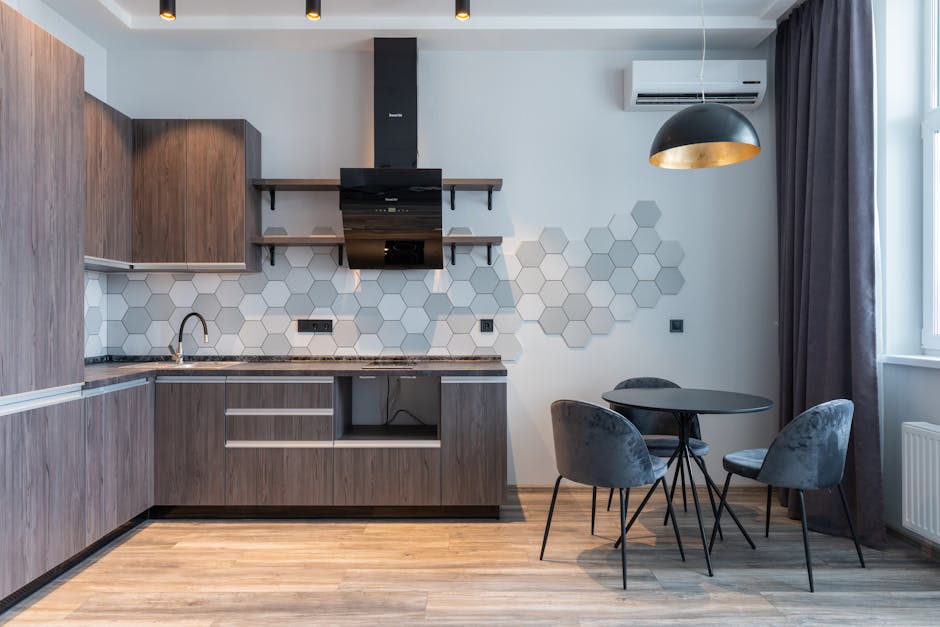Understanding Integrated Security Systems
Integrated security systems combine multiple security components into one cohesive system. This includes surveillance cameras, motion sensors, door alarms, and control panels. These systems are designed to work together, providing comprehensive security coverage for your home. With integrated security systems, you can monitor your property remotely, receive alerts in case of any security breaches, and easily arm or disarm the system.
Importance of Integrated Security Systems for Residential Use
Integrated security systems for homes are essential for keeping your family and belongings safe. These systems combine different security features like alarms, cameras, and access control to provide comprehensive protection. Here’s why they are crucial for residential use:
- 24⁄7 Monitoring: Integrated systems often come with monitoring services that alert authorities in case of emergencies.
- Real-Time Alerts: You can receive instant notifications on your phone about any suspicious activity at home.
- Remote Access: With integrated systems, you can control and monitor your home security from anywhere using your smartphone.
- Deterrent: Visible security systems act as a deterrent to potential intruders, reducing the risk of break-ins.
- Peace of Mind: Knowing that your home is protected gives you peace of mind, whether you’re at home or away.
Types of Integrated Security Systems Available
Integrated security systems for residential use come in various types to cater to different security needs. Here’s a simplified breakdown of the available options:
- Wireless Security Systems:
- Easy to install without the need for extensive wiring.
- Hardwired Security Systems:
- Relies on physical wiring for communication and power supply.
- Hybrid Security Systems:
- Combines features of both wireless and hardwired systems for flexibility.
Understanding the differences between these types can help you choose the integrated security system that best suits your home’s security requirements.
Features to Consider When Choosing a System
When choosing an integrated security system for your home, there are several key features to consider. These features can help ensure that the system meets your specific needs and provides the level of protection you desire.
- Wireless Connectivity: Make sure the system offers wireless connectivity for easy installation and flexibility in placement of security devices.
- Remote Monitoring: Look for a system that allows you to monitor your home remotely through a mobile app or online portal.
- Customization Options: Check if the system allows you to customize settings and alerts based on your preferences.
- Integration with other Smart Devices: Consider if the system can integrate with other smart home devices, such as smart lights or thermostats, for added convenience.
- Professional Monitoring Services: Determine if the system offers professional monitoring services for round-the-clock surveillance and immediate response to emergencies.
By considering these features, you can choose an integrated security system that best fits your residential security needs.
Budgeting for Your Integrated Security System
Setting a budget for your integrated security system is crucial. Prioritize what features you need based on your home’s layout and your security priorities. Compare prices from different providers. Remember, investing in a reliable system is an investment in your peace of mind and your home’s safety.
Selecting the Right Security Cameras
When choosing security cameras for your home, consider the area you want to cover and the type of features you need. Look for cameras with high-definition resolution to capture clear images and video footage. Motion detection and night vision are essential for monitoring activity both during the day and at night. Wireless cameras offer flexibility in installation but require a stable Wi-Fi connection. Outdoor cameras should be weatherproof to withstand the elements. Pan-tilt-zoom (PTZ) cameras allow you to remotely control the camera’s view. Cloud storage provides a convenient way to store and access recorded footage. Lastly, ensure compatibility with your existing security system if you have one in place.
Access Control and Monitoring Options
Integrated security systems offer a variety of access control and monitoring options for residential use. These systems provide keypad entry, which allows residents to enter a unique code to access their property. Additionally, key fobs can be used for convenient access without the need to remember a code. Some systems also offer biometric access, which uses fingerprints or facial recognition for added security. These access control options are complemented by real-time monitoring, allowing homeowners to keep tabs on their property at all times.
Integration with Smart Home Technology
Integrated security systems can be seamlessly integrated with smart home technology to provide you with a comprehensive security solution for your residence. By combining your security system with smart home devices, you can control and monitor your security system remotely through your smartphone or other connected devices. This integration allows for enhanced convenience and peace of mind, as you can receive real-time alerts and notifications about the security status of your home, even when you are away.
Hiring Professional Installation Services
When installing integrated security systems for your home, hiring professional installation services is highly recommended. Professionals have the expertise to ensure that the system is set up correctly, maximizing its effectiveness. Additionally, professional installers can offer guidance on the best placement for cameras, sensors, and other components to enhance your home’s security. Hiring experts can save you time and prevent potential errors that could compromise your system’s functionality.
Maintenance and Upkeep of Your Integrated Security System
To keep your integrated security system working smoothly, regular maintenance is essential. Here are some tips to help you maintain and upkeep your system efficiently:
- Schedule Regular Inspections: Bring in a professional to inspect your system at least once a year to ensure everything is in working order.
- Check for Software Updates: Keep your system up to date with the latest software to ensure optimal security features.
- Test Alarms and Sensors: Regularly test all alarms, sensors, and cameras to make sure they are functioning correctly.
- Keep Surrounding Areas Clear: Ensure that the area around your security devices is clear of any obstructions that could hinder their effectiveness.
- Replace Batteries: Regularly check and replace the batteries in your devices to prevent any downtime in security coverage.
Remember, a well-maintained security system provides peace of mind and protection for your home and loved ones.





